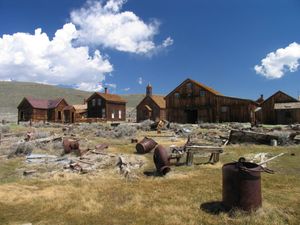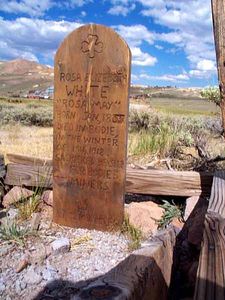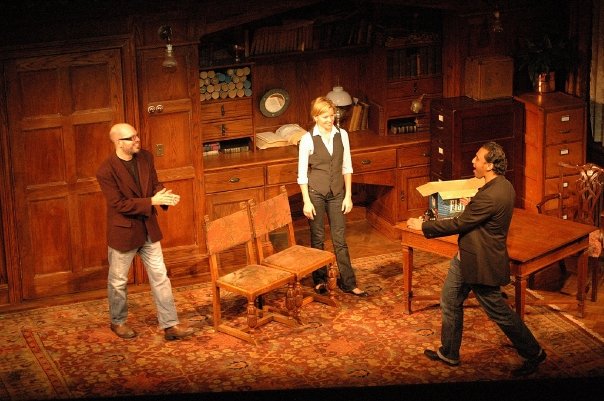I stumbled upon (yeah yeah, who cares – its a great website) this really cool site that showcases a bunch of theatre spaces that were once majestic and perfect and are now decayed and abandoned. THe title paage says “Before being darkened forever, they were sites of entertainment, pleasure, and contemplation- sometimes for audiences who had no other means of escaping from their worlds”
You guys gotta take a quick scroll through these various closed performance spaces! They are just beautiful. I know, I found myself saying my god they are so beautiful. And yet most of them are covered in dust, the stage is broken in, the curtains are ripped, the walls are falling down and the half seats are missing. But I still find the most interesting beauty in it all. Why is that?
I think its because I realize all the worlds that were once created on these stages. The hundreds (thousands?) of plays that were mounted on these unique spaces, in these specific towns/cities/villages etc all of the word… All that life still fills these pictures. Theres something really special and sacred and comforting to look at these photos. Again, comforting? huh? But for some reason it is! I wonder how this website would look to someone who is not constantly in the world of the theatre. Is it my close attachment to the art that makes me see all these decaying spaces so special?
I also see within all these spaces, NEW life that can be created. Whole new worlds that can still thrive in the decaying nature of the stage. I’ve been working on All My Sons in my directing class with Judy Braha and I’ve been interested in the nature of the play taking place in a haunted liminal space – like a purgatory. These abandoned spaces can serve that purpose! It holds such character and history and life.
I think about the building we work in everyday. All of Its history, where it started and what its become. We are performing an all girls production of Julius Caeser in a room that use to be a showroom for old Buicks?? (seriously check out that link and go to 1:16! CRAZY!) Its amazing! Thinking about the history of the CFA brings character and vibrancy and life into the building. I think theres something really special to be taken away from both these things. We constantly create worlds on top of the previous world – its like do you ever wonder how many layers of paint the TheatreLab has gone through? The layers of history in the space? It’s just really interesting to think about– how it provides a sort of sacredness to everything we do as artists.



 My freshman year here, getting to participate in SOT's own rendition of the "24 Hour Play Project" was the best thing to happen to me at the time.
My freshman year here, getting to participate in SOT's own rendition of the "24 Hour Play Project" was the best thing to happen to me at the time.
